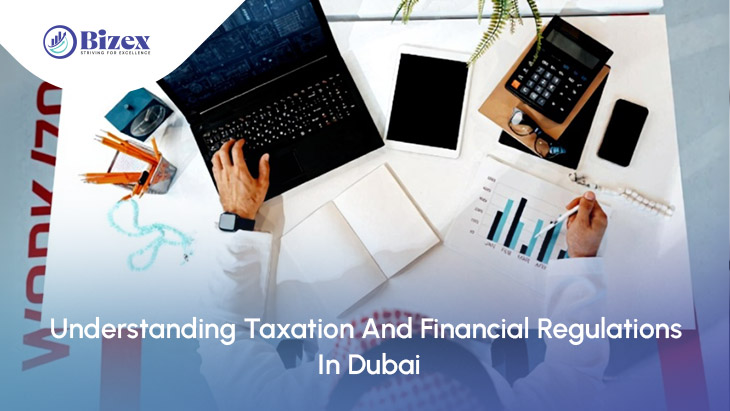Setting up a company in Dubai offers many benefits, and one important aspect that requires special attention is understanding the tax and financial regulations. The city's business-friendly environment is supported by a robust regulatory framework designed to foster economic growth while ensuring transparency and financial stability.
1. Profit tax:
One of the most attractive aspects for companies considering Dubai is the absence of corporate and personal taxes. In a region known for its oil-based economy, Dubai has diversified its revenue streams and its tax-free status remains a strong incentive for entrepreneurs. Understanding the nuances of this system is important for companies that want to optimize their financial structure and maximize profits.
2. Value Added Tax (VAT):
There is no corporate or personal tax, but Dubai introduced Value Added Tax (VAT) at a rate of 5% in 2018. This indirect tax applies to most goods and services, and businesses must register for VAT if their annual turnover exceeds a certain threshold. A thorough understanding of VAT regulations will help ensure compliance and avoid potential penalties.
Know more about Taxations & VAT Services in Dubai
3. Free zones and tariffs:
Dubai has a number of free zones that offer additional benefits, including exemption from customs duties. These zones are designed to attract specific industries such as technology, media, and healthcare. Exploring the benefits and requirements of these free zones requires a detailed understanding of the tariff and trade regulations associated with them.
4. Double taxation agreement:
Dubai has entered into double taxation agreements with many countries, providing incentives for companies to avoid taxation on the same income in both Dubai and their home countries. Understanding the provisions of these treaties is essential for businesses conducting international transactions as they affect tax obligations and facilitate cross-border transactions.
5. Regulatory agencies:
Dubai's financial situation is overseen by several regulatory bodies, each with its own rules and guidelines. The Dubai Financial Services Authority regulates financial services within the Dubai International Financial Center, while the Securities and Commodities Authority oversees the financial markets. A comprehensive understanding of these regulatory bodies is essential for companies










 1744
1744 


Leave a reply